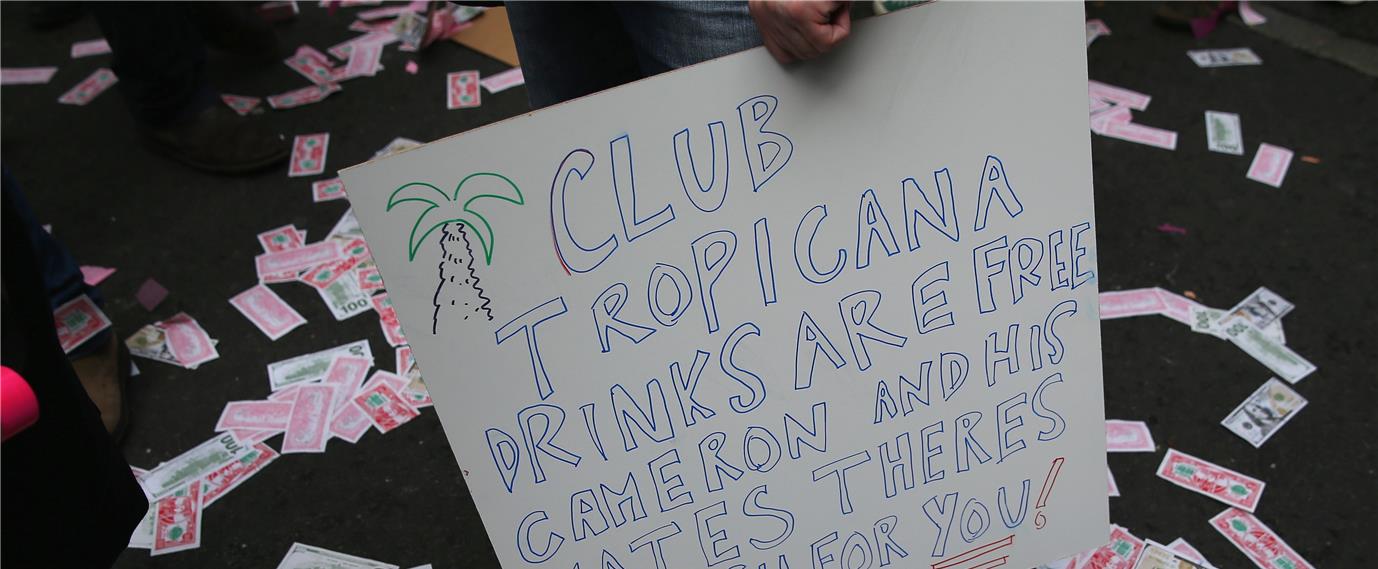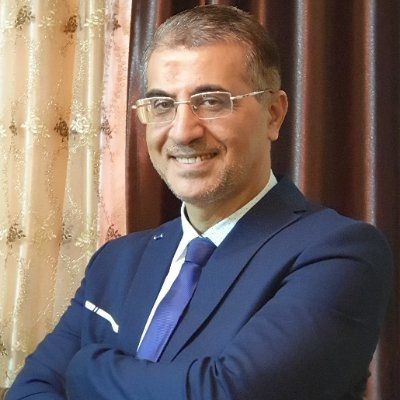في علم التسويق تعد خدمة "ما بعد البيع" من الخدمات الأساسية المكملة لجهود فريق التسويق، ويتولى تنفيذها غالباً فريق الدعم الفني واللوجستي للمؤسسة أو الجهة المشرفة على تنفيذ السياسات التسويقية والمتابعة مع المستهلكين.
خدمة "ما بعد البيع" تقوم أساسا على توفير الدعم الفني للزبون من صيانة وضمان ومتابعة واستطلاع رأي حول المنتج وجودته ومقارنته بمنتوجات أخرى، ومدى الرضا والمشكلات الناجمة عن الاستخدام وكيفية التعامل معها، لدرجة أن خبراء التسويق يرون بأن خدمة ما بعد البيع تعد اليوم أمرا رئيسيا في حسم قرارات الشراء للمستهلكين ولم تعد مجرد ترف أو أمر كمالي.
فما العلاقة بين خدمة "ما بعد البيع" والتحقيقات الاستقصائية؟ وما استراتيجيات تفعيل نتائج التحقيقات الاستقصائية في الوطن العربي بما يعزز مبدأي المساءلة والمحاسبة الحقيقيّين لا الصوريين؟
بالنظر إلى حجم التحقيقات الاستقصائية في الوطن العربي والموضوعات المهمة والحساسة التي تتناولها والنتائج التي تكشف عنها؛ نجد أنها غالبا لا تحدث التأثير المطلوب الذي يكافئ الجهود المبذولة في كشف الحقائق التي من شأنها تغيير وإصلاح ومحاربة للفساد.
الجهود المضاعفة والمخاطر الجسيمة التي يواجهها الصحفيون الاستقصائيون والقضايا المهمة التي يطرحونها ويحفرون فيها عميقاً تستدعي ألا يتم التعامل مع التحقيق الاستقصائي كخبر أو رأي عابر، وألا يقتصر على إثارة الحماس "الآني والموسمي" ضد المتهمين والانحياز إلى جانب الضحايا، وهو ما يشبه في كثير من الأحيان زوبعة في فنجان، تنقضي دون أن تُفضي إلى نتائج ملموسة وتعجز عن تغيير الواقع القائم للعديد من الأسباب الموضوعية وغير الموضوعية.
قد يرى البعض بأن مهمة الصحفي هي الكشف عن قضايا الفساد وتوضيح الحقائق للمواطنين وللرأي العام، ومهمة الجهات المسئولة والمعنية هي متابعة تلك القضايا والتحقق من المتورطين في الفساد ومحاسبتهم ومساءلتهم، وهو كلام سليم في حال وجود مؤسسة ونظام وقانون، لكن طالما أن الجهة المخولة بالمحاسبة تحتاج غالبا إلى محاسبة فإن مهمة الصحفي يجب أن تتضاعف وتتجاوز حالة إنجاز التحقيق إلى الانخراط في عمل منظم لإجبار المؤسسة القائمة على اتخاذ إجراءات لمحاسبة الفاسدين وإنصاف المظلومين والمنتهكة حقوقهم.
وقياساً على خدمة "مابعد البيع" في التسويق؛ يمكننا التأسيس لخدمة "ما بعد النشر" في الصحافة الاستقصائية حتى لا تضيع الحقائق المكتشفة هدرا بدون توظيفها واستثمارها في إحداث تغيير في المجتمع نحو الأفضل ومحاربة الفساد بأشكاله وهيئاته وأشخاصه ومواقعه المختلفة عبر تعزيز مبدأي المساءلة والمحاسبة.
أبقها حية ومتفاعلة!
مارك لي هانتر، خبير في الصحافة الاستقصائية وأستاذ مساعد وزميل بحث متقدم في كلية الدراسات العليا في الأعمال INSEAD بفرنسا، يقول في حوار هاتفي أجريته معه: "الصحفي الاستقصائي لا يستطيع أن يكسب الجولات بمفرده، إذ يحتاج إلى جهود الآخرين معه وخاصة المرتبطين بالموضوع بصورة مباشرة وغير مباشرة مثل الضحايا والمواطنين والخبراء وكل الداعمين للحقوق".
ينطلق هانتر في رؤيته لمتابعة الصحفي لنتائج تحقيقه الاستقصائي من زاويتين، هما: أن يظل الصحفي الاستقصائي على تواصل مباشر قبل النشر مع المصادر وبعد النشر مع المعنيين، وأن يعمل على إبقاء القضية حية ومتفاعلة من خلال متابعتها مع الجهات ذات الاختصاص والضحايا وغيرهم".
وزاوية إضافية لما تقدم به هنتر، عرضتها الصحفية الاستقصائية الفلبينية "شيلا كورنيل" أمام منتدى شبكة أريج للصحافة الاستقصائية في العالم العربي العام الماضي، إذ قالت "الإعلاميون العرب مدعوون إلى التضامن مع بعضهم البعض أكثر من أي وقت مضى، حتى لا تنفرد بهم السلطات، وحتى يدرك السياسيون الفاسدون أنهم ليسوا وحيدين في الميدان".
ومن جملة ما تحدثت به بما يتوافق مع موضوع التقرير "نحن ندفع ثمناً مقابل قول الحقيقة، لكن إن بقينا صامتين فستدفع المجتمعات والدول ثمن صمت الصحفيين الذين يكتبون النسخة الأولى من التاريخ".
نهاية "تراجيدية"
لو استعرضنا التحقيقات الاستقصائية التي ينتجها الصحفيون العرب، لاستشكفنا حجم الخطر المحدق بالمواطن العربي لانتهاك حقوقه واستغلاله وابتزازه في كافة مجالات الحياة وفي كافة الحقوق التي من حقه التمتع بها.
لكن في المقابل تجد أن النسبة المئوية لأصداء التحقيقات والنتائج العملية التي ترتبت على كشف قضايا الفساد والمتورطين بها، خاصة إذا كانوا مقربين من الأنظمة والأحزاب والمؤسسات الحاكمة، لا تذكر مقارنة بحجم قضايا الفساد في العالم العربي.
قضايا الفساد موجودة في كل العالم ولم تعد سرا يذاع، لكن في العالم الذي يحتكم إلى القانون وإلى منظومة العمل المؤسسي نجد أنه لا غطاء للفاسدين، ولنا في النماذج العالمية أمثلة متعددة في هذا الإطار في دول عدة، وفي المقابل لنا في الثورات العربية أكبر النماذج على عدم محاسبة الفاسدين.
هذه النهاية التراجيدية لسلسلة من التحقيقات الاستقصائية في العالم العربي؛ تمثل رسالة من الفاسدين إلى كل من يحاول الإصلاح وكشف المستور في جوانب الحياة المختلفة مفادها أن "الفساد باق طالما لا قانون ولا محاسبة ولا شفافية ولا نزاهة لدى القائمين على أمور الناس".
نهاية يعززها ارتفاع منسوب الفساد عربيا، ليس هذا فحسب؛ بل إن الفاسدين يراهنون على أن الموجة التي تلي نشر التحقيقات الاستقصائية مجرد عاصفة تمر سريعا مر السحاب، ثم ما يلبث المجتمع أن ينشغل بقضية أخرى دون منهجية في التعاطي مع مثل هذه القضايا والتحقيقات المهمة، وبالتالي يتواصل الإفلات من العقاب.
أصداء متواضعة!
وحتى نتعرف أكثر إلى ما تؤول إليه نتائج التحقيقات الاستقصائية العربية، أورد هنا ما ذكرته رنا صباغ، المديرة التنفيذية لشبكة إعلاميون من أجل صحافة استقصائية عربية (أريج) لشبكة CNN عن تجربة العرب مع قضية "أوراق بنما" وكيف كانت نتيجة النشر/البث في زمن يطغى فيه التضليل والتعتيم على محتوى وسائل الإعلام العربية العامة والخاصة، رغم تورط شخصيات عامة ورئيسية في عدد من الدول العربية. تقول "أصداء قليلة.. قرّاء ومتابعون ومتخصصون شكروا الزملاء على جهودهم الرائعة، على أن غالبية وسائل الإعلام العربية أخفت أسماء مشاهير الوجبة الأولى وبعضها طعن في صدقية هؤلاء الصحفيين وأهمية تعاونهم مع أريج".
وتساءلت صباغ بعد المرارة ورحلة المعاناة والمطاردة للصحفيين العرب المشاركين في فريق كشف أوراق بنما: "هل سيستسلمون بعد أن كوفئت جهودهم بأكوام من التشكيك والتحامل؟ لا، أبدا".
غير أن الحكومات ليست وحدها من يحاول منع نشر التحقيقات والتعاطي مع نتائجها، إذ أن "تعامل الإعلام العربي مع أوراق بنما خذل حق المجتمع في المعرفة والاطلاع، حيث أن غالبية وسائل الإعلام العربية الخاصة لم تذكر أسماء الشخصيات العربية التي تخص بلادها، بينما اضطرت للتعاطي مع خبر استقالة رئيس وزراء آيسلندا والعاصفة التي هزّت رئيس وزراء بريطانيا، الذي قرر أخيرا الإفصاح عن سجله الضريبي"، وفق الصباغ.
تجربة من تجارب عديدة نستعرضها كنموذج على ضعف تأثير التحقيقات الاستقصائية العربية في تفعيل مبدأي المساءلة والمحاسبة بكل شفافية، في وقت أطاحت فيه تلك الوثائق المسربة بشخصيات لها وزنها السياسي، وأجبرت غيرهم على تقديم اعترافات بتورطهم بقضايا فساد.
جلسات استماع ومساءلة
ورغم ذلك لا ننكر أن عددا من التحقيقات الاستقصائية العربية آتت أكلها وأدت إلى إحداث تغيير ولو بالحد الأدنى، عبر تطبيق مبدأ المساءلة الذي كثيرا ما يُقابل بقيود تشريعية ومضايقات تصل إلى حد الانتهاكات للصحفيين الاستقصائيين لإرغامهم على الابتعاد عن منطقة "حقل الألغام" التي يقتربون منها.
وثمة تجربة أخرى نوعية للائتلاف من أجل النزاهة والمساءلة "أمان" تعرضها لنا نادين الصيفي منسقة الإعلام والاتصال، حيث تروي لنا تجربتهم مع متابعة الصحافة الاستقصائية في فلسطين، فتقول: "لا نكتفي بنشر نتائج التحقيق الاستقصائي فقط وإنما نعمل على متابعتها إيجابية كانت أم سلبية بطرق مختلفة تترواح ما بين عقد جلسات استماع للأطراف الحكومية المعنية، أو عقد جلسات مساءلة بحضور الطرف الرسمي والأطراف الشعبية والأهلية، فضلا عن انتهاج نمط حلقات المساءلة الإذاعية لطرح القضية على الرأي العام وتناول ما يقوله فيها.. ليس هذا فحسب؛ فمؤسسة "أمان" التى ترعى وتدعم عشرات التحقيقات الاستقصائية تتولى متابعة ورفع النتائج والتوصيات وكل ما يترتب على الجلسات والحلقات إلى مجلس الوزراء مع إعلام الأطراف الحكومية الأخرى ذات العلاقة ومن ثم نعمل على نشر هذه التوصيات في الإعلام، فضلا عن استخدام نتائج وتوصيات التحقيقات الاستقصائية وتضمينها في التقرير السنوي الذي تعده "أمان" كل عام وتبني عليه خطة التدخلات كاملة للعام الذي يليه، وذلك كله بهدف ممارسة مزيد من الضغط نحو إحداث التغيير" وفق الصيفي.
منظومة في مقابل منظومة
منظومة العمل لمتابعة نتائج التحقيقات الاستقصائية، والعمل على تحقيق مبدأي المساءلة والمحاسبة يجب أن ينطلق من أسس منهجية لا عشوائية ويستند إلى خطوات عملية "طويلة النفس" ومتكاملة، من خلال آليات تترجم شعار "خدمة ما بعد النشر".
ويمكنني أن أوجز هذه الآليات في النقاط الآتية:
- تنظيم حملة إعلامية وتوعوية للجمهور لإطلاعه على مخاطر استمرار الفساد قبل نشر التحقيق ومواصلة الحملة وتكثيفها بعده.
- تشكيل "لوبي ضاغط" يضم مؤسسات إعلامية وغير إعلامية، ونخب مجتمعية وأهلية وحقوقية وخيرية لتضع الجميع أمام مسئولياته وترغم أصحاب القرار على اتخاذ خطوات حقيقية بحق المتورطين في قضايا الفساد.
- عدم الاستسلام لتصريحات المسؤولين التي تمثل "إبر تخدير" للرأي العام خاصة عندما يعلنون عن تشكيل لجنة لمتابعة التحقيق، فهذه هي بداية الهروب المنظم من استحقاقات محاسبة الفاسدين.
- إشراك الضحايا والجهات المعنية في الحفاظ على حيوية طرح الموضوع بأشكال مختلفة.
- مبادرة المؤسسات الشريكة والمعنية وخاصة الحقوقية منها بعقد جلسات المساءلة والمحاسبة والاستماع للأطرف المختلفة ذات العلاقة بالقضية المطروحة.
- استكتاب النخب المؤثرة في المجتمع من أجل تعزيز التأثير والضغط على الجهات المسؤولة وإرغامها على الاستجابة لمطالب التغيير.
إيماننا برسالتنا المهنية السامية لا ينطلق من رغبة بفوز التحقيق بمسابقة أو تكريم أو حصد أكبر عدد من اللايكات وإعجاب المشاهدين والقراء وغيرهم، بل يبقى المحرك والدافع الرئيس للصحفيين هو كشف الحقائق للجمهور وملاحقة المتورطين في الانتهاكات والجرائم المجتمعية المختلفة ومحاربة السلوك والأداء والممارسات الفاسدة.. لذا لا تنتظروا من الجهات الرسمية أن تهديكم حق ملاحقة الفاسدين، فقد تعلمنا منذ الصغر أن "الحقوق تُنتزع ولا توهب"، ولا تتوقعوا منها أن تشرع لكم القوانين التي من شأنها منحكم الحق في الحصول على المعلومات.
مراجع:
1) مروة العقاد، "وثائق بنما": تسريبات ضخمة توحّد الصحفيين وتطلق تحقيقات عابرة للحدود"، شبكة الصحفيين الدوليين. الرابط:http://cutt.us/103rj
2) رنا الصباغ، "تجربة العرب مع أوراق بنما: الصحافيين والصحافة العربية"، شبكة CNN بالعربية.
الرابط: http://arabic.cnn.com/middleeast/2016/04/14/rana-sabagh-panama-articles
3) شبكة أريج للصحافة الاستقصائية، "ملتقى أريج الثامن.. التوثيق والصدقية حصانة الصحافي الاستقصائي". الرابط: http://cutt.us/ahxXu
4) مقابلة خاصة مع: مارك هانتر - أستاذ مساعد وزميل بحث متقدم في كلية الدراسات العليا في الاعمال INSEAD بفرنسا.
5) مقابلة خاصة مع نادين الصيفي - منسقة الإعلام والاتصال في الائتلاف من أجل النزاهة والمساءلة "أمان" في فلسطين.








































